-
 Bitcoin
Bitcoin $117500
2.15% -
 Ethereum
Ethereum $3911
6.19% -
 XRP
XRP $3.316
10.79% -
 Tether USDt
Tether USDt $1.000
0.01% -
 BNB
BNB $787.2
2.24% -
 Solana
Solana $175.2
4.15% -
 USDC
USDC $0.9999
0.00% -
 Dogecoin
Dogecoin $0.2225
8.40% -
 TRON
TRON $0.3383
0.28% -
 Cardano
Cardano $0.7868
6.02% -
 Stellar
Stellar $0.4382
9.34% -
 Hyperliquid
Hyperliquid $40.92
7.56% -
 Sui
Sui $3.764
7.63% -
 Chainlink
Chainlink $18.48
10.66% -
 Bitcoin Cash
Bitcoin Cash $582.1
1.88% -
 Hedera
Hedera $0.2601
6.30% -
 Avalanche
Avalanche $23.33
4.94% -
 Ethena USDe
Ethena USDe $1.001
0.02% -
 Litecoin
Litecoin $122.3
2.04% -
 UNUS SED LEO
UNUS SED LEO $8.969
-0.27% -
 Toncoin
Toncoin $3.339
0.86% -
 Shiba Inu
Shiba Inu $0.00001287
4.30% -
 Uniswap
Uniswap $10.43
7.38% -
 Polkadot
Polkadot $3.861
5.08% -
 Dai
Dai $1.000
0.02% -
 Bitget Token
Bitget Token $4.513
3.41% -
 Monero
Monero $267.7
-6.18% -
 Cronos
Cronos $0.1499
4.14% -
 Pepe
Pepe $0.00001110
5.15% -
 Aave
Aave $284.9
8.28%
Is USDT currency domestic transaction legal?
Understanding the legality of USDT transactions necessitates knowledge of regulatory frameworks, classifications, transaction intentions, and cross-border regulations in various jurisdictions.
Feb 02, 2025 at 04:00 pm

Key Points:
- Definition of USDT: Understanding its nature and purpose.
- Legality of Domestic USDT Transactions: Exploring the regulatory landscape in various jurisdictions.
- Factors Affecting Legality: Identifying the key aspects that determine legal status.
- Potential Consequences of Illegal Transactions: Uncovering the risks associated with non-compliance.
- Safeguarding USDT Transactions: Best practices to ensure compliance and minimize potential risks.
Definition of USDT
Tether (USDT) is a stablecoin cryptocurrency that is pegged to the US dollar. It aims to provide a stable store of value and a medium of exchange for crypto transactions. USDT is primarily used for facilitating cross-border payments, hedging against price volatility, and providing liquidity in the crypto markets.
Legality of Domestic USDT Transactions
The legality of domestic USDT transactions varies depending on the jurisdiction. In many countries, cryptocurrencies, including Tether, are not explicitly regulated. However, some governments have implemented specific laws or regulations governing crypto transactions.
Factors Affecting Legality
- Regulatory Framework: The presence or absence of clear regulatory guidelines for cryptocurrencies, including stablecoins like USDT, can impact their legal status.
- Classifications: Different jurisdictions may classify USDT in various ways, such as a security, a commodity, or a currency. This classification can determine its regulatory treatment.
- Intention and Use: The intended purpose of the USDT transaction can influence its legality. Transactions that involve illegal activities, such as money laundering or terrorist financing, may be prohibited.
- Cross-Border Transactions: USDT transactions that involve cross-border payments may be subject to foreign exchange regulations or anti-money laundering laws.
Potential Consequences of Illegal Transactions
Engaging in illegal USDT transactions can lead to severe consequences, including:
- Financial Penalties: Imposition of fines or asset seizures by regulatory authorities.
- Criminal Charges: Prosecution for violations of anti-money laundering or other criminal statutes.
- Reputational Damage: Negative impact on the reputation of individuals or businesses involved in illegal transactions.
Safeguarding USDT Transactions
To ensure compliance and minimize potential risks, individuals and businesses should:
- Know Your Customer (KYC): Implement robust KYC procedures to verify the identity and purpose of customers engaging in USDT transactions.
- Anti-Money Laundering (AML): Comply with AML regulations, including reporting suspicious transactions and conducting due diligence on customers.
- Legal Counsel: Consult with legal professionals to understand the specific regulatory framework governing USDT transactions in their jurisdiction.
- Monitor Regulatory Updates: Stay informed about any changes or updates to the regulatory landscape affecting USDT transactions.
- Work with Reputable Platforms: Conduct USDT transactions through reputable exchanges and platforms that implement strong compliance measures.
FAQs
Q: Is USDT legal in my country?
A: The legality of USDT in a specific country depends on the regulatory framework and classification of cryptocurrencies in that jurisdiction. It is recommended to consult with local legal counsel for definitive guidance.
Q: Can I trade USDT on exchanges in my country?
A: The availability of USDT trading on exchanges in a country depends on the regulations and policies of the exchanges. Some exchanges may offer USDT trading, while others may not.
Q: What is the potential impact of regulatory changes on USDT transactions?
A: Regulatory changes can significantly impact the legality and accessibility of USDT transactions. Changes in classification, restrictions on certain uses, or enhanced compliance requirements are potential outcomes of regulatory developments.
Q: What are the best practices for safeguarding USDT transactions?
A: Adhering to KYC and AML procedures, monitoring regulatory updates, and working with reputable platforms are key best practices for ensuring compliance and minimizing risks in USDT transactions.
Q: What are the potential risks of using USDT for illegal activities?
A: Engaging in illegal USDT transactions can result in financial penalties, criminal charges, and reputational damage. It is crucial to avoid using USDT or any other cryptocurrency for illicit purposes.
Disclaimer:info@kdj.com
The information provided is not trading advice. kdj.com does not assume any responsibility for any investments made based on the information provided in this article. Cryptocurrencies are highly volatile and it is highly recommended that you invest with caution after thorough research!
If you believe that the content used on this website infringes your copyright, please contact us immediately (info@kdj.com) and we will delete it promptly.
- Tron's Sell-Off Spurs Altcoin Shift: What's Next for TRX?
- 2025-08-08 08:30:12
- RUVI Presale: Is the Growth Potential Real?
- 2025-08-08 09:10:12
- Sleep Token's US Takeover: Thornhill Rides the 'Even In Arcadia' Wave
- 2025-08-08 08:30:12
- FTT Token's Wild Ride: Creditor Repayments vs. Market Drop - A New Yorker's Take
- 2025-08-08 07:10:12
- Floki Crypto Price Prediction: Riding the Robinhood Rocket or Just a Meme?
- 2025-08-08 07:15:12
- EigenLayer, Restaking, and Ethereum: Navigating the Hype and the Hazards
- 2025-08-08 06:30:12
Related knowledge
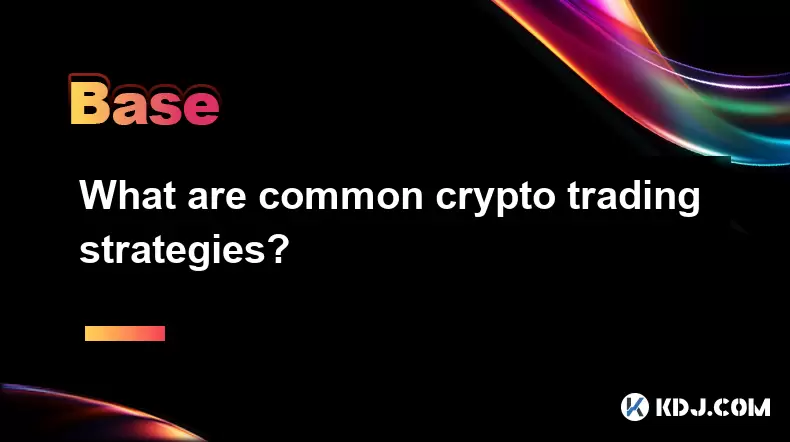
What are common crypto trading strategies?
Aug 08,2025 at 12:42pm
Understanding Trend Following in Crypto TradingTrend following is one of the most widely adopted crypto trading strategies due to its simplicity and a...
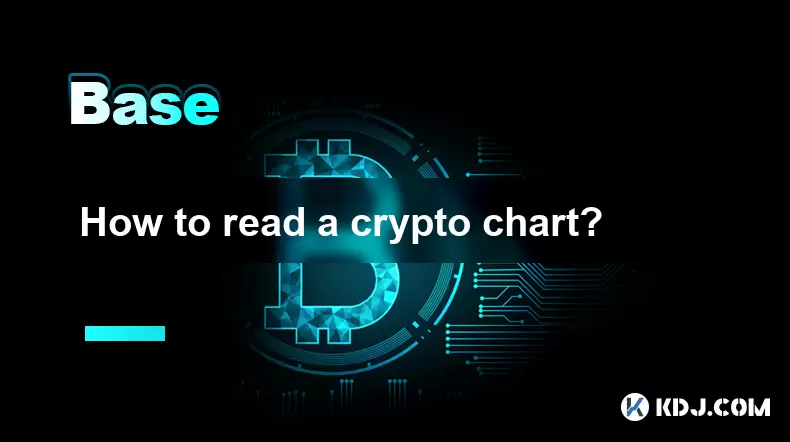
How to read a crypto chart?
Aug 08,2025 at 10:35am
Understanding the Basics of a Crypto ChartA crypto chart is a visual representation of the price movements of a cryptocurrency over time. These charts...
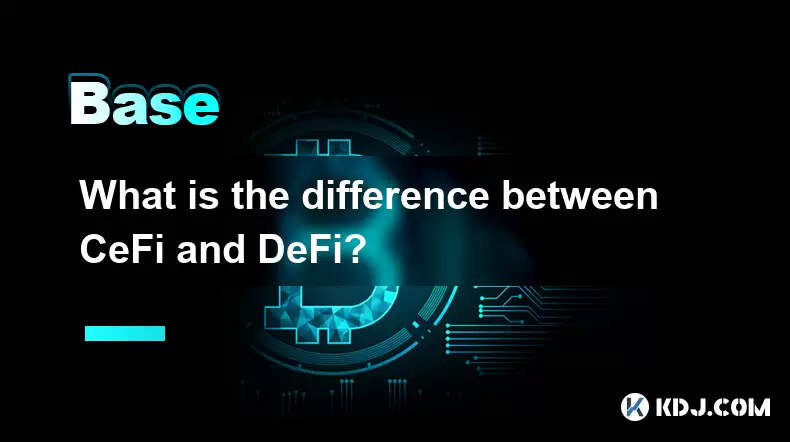
What is the difference between CeFi and DeFi?
Jul 22,2025 at 12:28am
Understanding CeFi and DeFiIn the world of cryptocurrency, CeFi (Centralized Finance) and DeFi (Decentralized Finance) represent two distinct financia...

How to qualify for potential crypto airdrops?
Jul 23,2025 at 06:49am
Understanding What Crypto Airdrops AreCrypto airdrops refer to the distribution of free tokens or coins to a large number of wallet addresses, often u...
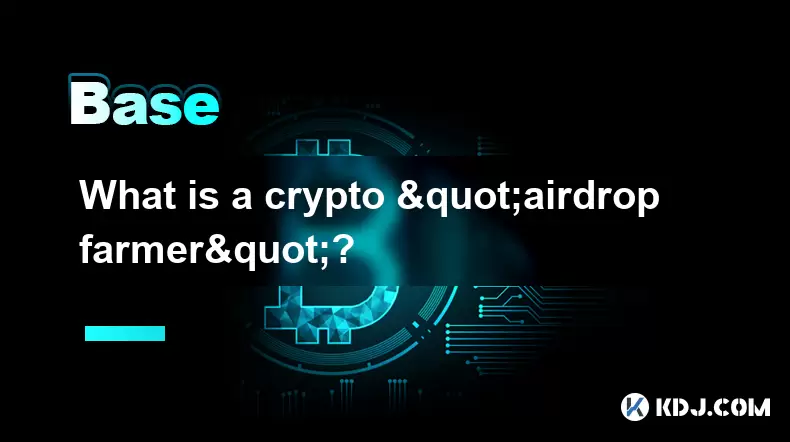
What is a crypto "airdrop farmer"?
Jul 24,2025 at 10:22pm
Understanding the Role of a Crypto 'Airdrop Farmer'A crypto 'airdrop farmer' refers to an individual who actively participates in cryptocurrency airdr...
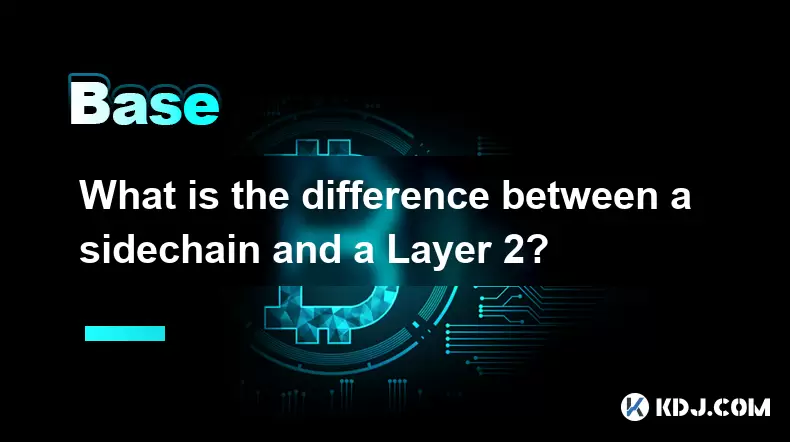
What is the difference between a sidechain and a Layer 2?
Jul 20,2025 at 11:35pm
Understanding the Concept of SidechainsA sidechain is a separate blockchain that runs parallel to the main blockchain, typically the mainnet of a cryp...

What are common crypto trading strategies?
Aug 08,2025 at 12:42pm
Understanding Trend Following in Crypto TradingTrend following is one of the most widely adopted crypto trading strategies due to its simplicity and a...

How to read a crypto chart?
Aug 08,2025 at 10:35am
Understanding the Basics of a Crypto ChartA crypto chart is a visual representation of the price movements of a cryptocurrency over time. These charts...

What is the difference between CeFi and DeFi?
Jul 22,2025 at 12:28am
Understanding CeFi and DeFiIn the world of cryptocurrency, CeFi (Centralized Finance) and DeFi (Decentralized Finance) represent two distinct financia...

How to qualify for potential crypto airdrops?
Jul 23,2025 at 06:49am
Understanding What Crypto Airdrops AreCrypto airdrops refer to the distribution of free tokens or coins to a large number of wallet addresses, often u...

What is a crypto "airdrop farmer"?
Jul 24,2025 at 10:22pm
Understanding the Role of a Crypto 'Airdrop Farmer'A crypto 'airdrop farmer' refers to an individual who actively participates in cryptocurrency airdr...

What is the difference between a sidechain and a Layer 2?
Jul 20,2025 at 11:35pm
Understanding the Concept of SidechainsA sidechain is a separate blockchain that runs parallel to the main blockchain, typically the mainnet of a cryp...
See all articles

























































































